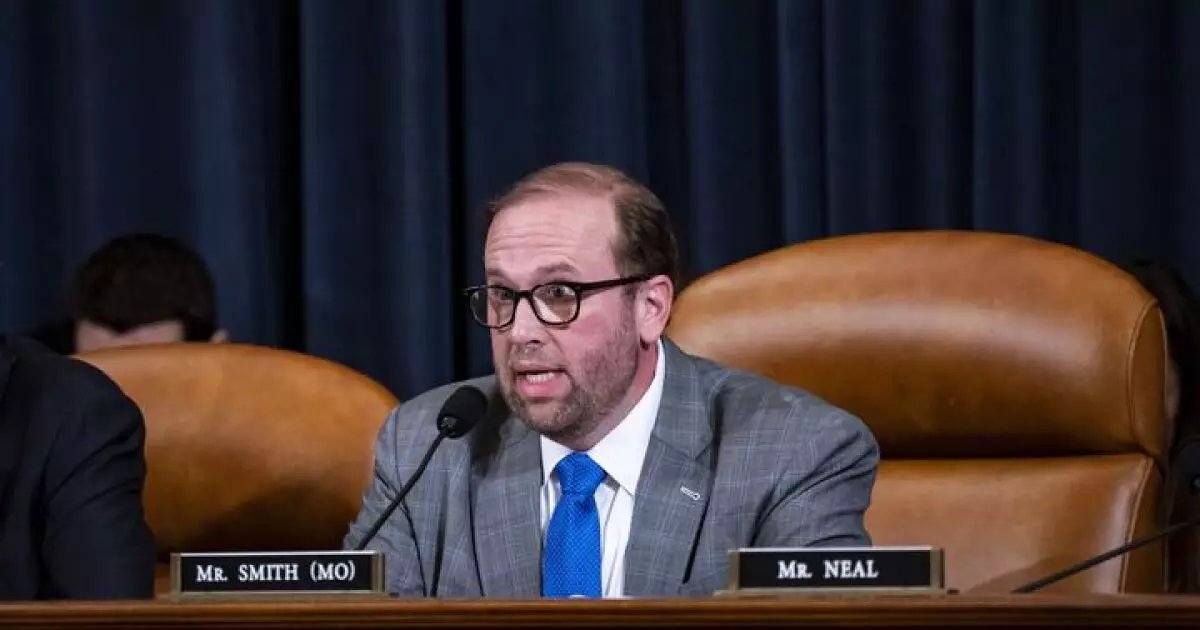Fiscal Responsibility: Navigating the Debate on Tax Policy in the 119th Congress

As the 119th Congress convenes, a critical discourse has emerged within the House Ways and Means Committee regarding the future trajectory of the Tax Cuts and Jobs Act (TCJA). The crux of the debate pits conflicting ideologies against each other: the potential for economic growth under the current tax framework versus the looming threat of escalating national debt. This topic is of paramount importance to municipal finance stakeholders, who are increasingly concerned that tax-exempt bonds may come under scrutiny as a means to recuperate lost tax revenue. With an array of opinions being voiced, the outcome of these discussions could significantly impact various economic sectors.
The TCJA, enacted during Donald Trump’s presidency, is often hailed by proponents as a cornerstone of economic revitalization following the slower growth period that characterized the Obama administration. Jason Smith, the Committee Chairman, proclaimed that the tax cuts served as “rocket fuel” for American economic engines, leading to enhanced wages, decreased unemployment, and historically low poverty rates. These assertions reflect a narrative that associates tax reductions with prosperity, suggesting that tax policy can effectively stimulate economic performance through increased disposable income for workers.
However, it is essential to critically analyze this perspective. While many economic indicators did show improvement during this time, critics argue that these gains were largely financed by a substantial increase in national debt, which has ballooned in conjunction with the implementation of TCJA. The Democratic minority, represented by figures such as Richard Neal, challenges the feasibility of continuing these tax cuts in light of the national debt burden, raising pertinent questions about fiscal sustainability and long-term economic implications.
Integral to this discussion are two specific provisions of the TCJA: the cessation of advance refunding for tax-exempt bonds and the introduction of a $10,000 limit on state and local tax (SALT) deductions. These provisions have stirred concern among municipal finance advocates, apprehensive that any further reforms could adversely affect public financing methods and local government revenue. The tension exists within a landscape where both parties share the goal of minimizing individual tax rates for middle-class families, yet remain divided on corporate tax structures and SALT deduction modifications, leaving critical conversations open for negotiation.
Republicans presented a lineup of witnesses, including local business owners and tax professionals, to bolster their argument for extending the TCJA. They highlighted the benefits of preserving the Child Tax Credit, extending specific deductions, and maintaining provisions surrounding estate taxes. Yet, while they champion these elements as evidence for not altering the current tax structure, Democrats counter these arguments with calls for increased taxation on higher earners and corporations.
A notable aspect of the debate emerged when Democrats referenced statements from conservatives advocating a tax increase to address fiscal discrepancies. Rep. Lloyd Doggett’s citation of Steve Bannon’s remarks illustrated an emerging recognition among some Republicans that without addressing revenue loss via tax cuts, the national debt will continue to ascend, placing the nation’s economic standing in jeopardy. This acknowledgment signifies an essential turning point in the dialogue—indicating that the dichotomy of maintaining low taxes while upholding fiscal responsibility may not be as simple as previously thought.
The national debt situation further complicates this discourse, as lawmakers face the impending challenge of negotiating the debt ceiling, a move that could have substantial repercussions on the nation’s credit rating. With an increasing need for responsibility in financial policymaking, the discussions surrounding the TCJA could serve as a microcosm for broader fiscal debates that will shape the legislative landscape in the coming years.
In conjunction with these pressing topics, the Committee also announced new subcommittee leadership assignments for the 119th Congress, appointing various members to oversee pivotal areas such as health, oversight, and trade. Notably, these shifts could influence how tax policy discussions are navigated, especially as different factions within Congress advocate for varied fiscal strategies.
The tax policy debate exemplifies the complexities of governing in an increasingly polarized environment. As the 119th Congress engages with the TCJA and its implications, it will be critical to approach these discussions with an eye toward balanced growth, ensuring that any modifications to taxation do not unduly burden future generations with unsustainable debt. Only through diligent and thoughtful discourse can lawmakers hope to reach a consensus that fosters both economic vitality and fiscal prudence.





